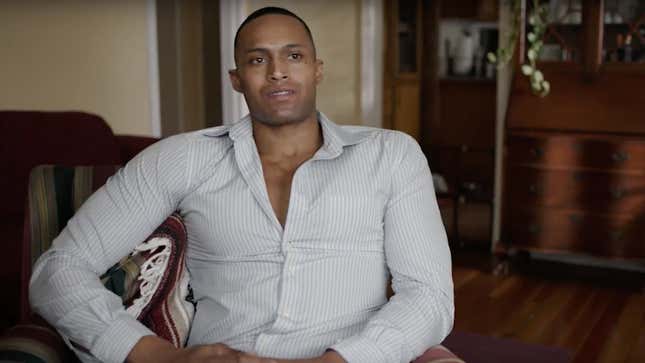
In the fall of 2017, Nikko Briteramos was turned away from Los Angeles barbershop King of Kuts, despite getting his hair cut there several times before. But things changed once a barber disclosed to the shop’s owner he was HIV positive, Briteramos said. When he went to King of Kuts in October for a scheduled appointment, the barber came out to Breiteramos and told him not to come back.
“‘Don’t worry about the other times I cut your hair, but I can’t cut your hair anymore. I have a lot of celebrity clientele,’” Ramos recounted the barber telling him. “After that, he shook my hand, and I looked at him, and I just kind of walked away.”
The decision to refuse Briteramos service will now cost King of Kuts just over $80,000. According to Out.com, a judge ruled last week that the barbershop will need to pay out $75,000 plus additional court fees to the personal trainer, who filed a lawsuit against the shop in 2018 with the aid of Lambda Legal, a legal advocacy group for LGBTQ rights.
Briteramos’ suit argued that denying him service violated the Americans with Disabilities Act and California’s Unruh Civil Rights Act.
But King of Kuts never responded to the suit, Out reports, prompting Briteramos and his legal team to request a default judgment earlier this year. The barbershop never responded to that request either, causing Judge Andre Birotte Jr. to rule in Briteramos’ favor.
Briteramos commended the judgment in a statement.
“This judgment is proof that what happened to me in that barbershop—and what happens to people living with HIV who experience discrimination just trying to do basic things in life like go to the dentist or get a haircut—is simply not acceptable,” he said, likening the discrimination he experienced to Jim Crow laws.
It’s not the first time Briteramos has been subjected to discrimination because of the fact he lives with HIV—much of it has come as a result of a high profile case in South Dakota from 2002 in which Briteramos was sentenced to prison for exposing his then-girlfriend to HIV. The former college basketball player was only 19 at the time, and the case drew international attention as activists denounced the latent racism and homophobia of harsh partner-notification laws.
Sixteen years after the high-profile case, Briteramos moved to Los Angeles to start fresh, he told TheBody, a website that provides HIV/AIDS-related news and resources, last year. And as with many men of color, the barbershop provided a place of refuge and community for the Chicago native.
“The barbershop is one of the best places to hear other people’s opinions,” he said. “I said it was a men’s club. It’s a neutral ground for people to talk about things that are sometimes political or economic or just entertainment: the things that make people happy. That’s a very important thing to expose yourself to.
“It’s an experience that is, to me, vital and necessary to being part of society,” Briteramos continued, adding that if people living with HIV were shut out from that experience, it would be a “major loss.”
Briteramos’ case against King of Kuts spurred the Black AIDS Institute’s 2018 “Cut the Stigma” campaign, which seeks to educate black businesses about common myths and misconceptions about living with HIV.
In a statement, Institute CEO Raniyah Copeland said Briteramos’ experience “highlights how black people living with HIV are confronted with discrimination every day.”
“This judgment puts businesses on notice that discrimination will not be tolerated,” Copeland said, adding, “freedom for black people means that all black people deserve to live without fear of discrimination.”
In explaining his decision to bring the lawsuit forward for the #CutTheStigma campaign, Briteramos pointed out that the law can have a transformative effect on people and businesses.
“The law has the ability to hopefully impact large swaths of the population’s behavior at the same time,” he said. “I dream that this case, in particular, is going to provoke people to address these issues that they don’t like to talk about.”

